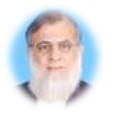IFRS 17:
The New Financial Reporting Regime for Insurance Companies
WHY CHANGES TO CURRENT ACCOUNTING STANDARDS FOR INSURANCE CONTRACTS
We provide a range of services to our valued business partners across the globe including Europe,
the Middle East, South East Asia and the Far East. Our specialty services include actuarial
valuations, financial reporting, product and business development and enterprise risk management. In
addition, our firm provides actuarial personnel
outsourcing for allowing organizations to engage in full-time actuarial services for long-term cost
effectiveness.
One of the main issues in the existing accounting framework is a lack of comparability. Comparability among insurance companies, insurance contracts and industries is important to fairly reflect the value of insurance contracts along with consistent outputs in the financial reporting framework across jurisdictions. For example, some companies recognize all premiums received as revenue while it may contain the savings components of policyholders’ value to be returned after providing services to the insurance policy. Thus all premiums received do not truly reflect the full revenue recognized by insurance companies as income. It therefore becomes very difficult to compare the insurance industry’s revenues with revenues for other industries where they report their revenues based on actual service provided. A lack of transparent and relevant information is a major concern in the existing financial reporting standards.
From the investors and analysts perspectives, IFRS 4 has caused problems in comparing and understanding insurance contracts across jurisdictions. Information in the financial statements is limited which lead to ambiguity in reporting, narrow investments and ultimately defective decision-making.
what is ifrs 17
IFRS 17 establishes principles for the recognition, measurement, presentation and disclosure of insurance contracts within the scope of the Standard. One of the objectives of IFRS 17 is to ensure that an entity provides relevant information that faithfully represents those contracts. This information gives a basis for users of financial statements to assess the effect that insurance contracts have on the entity’s financial position, financial performance and future cash flows.
IFRS 17 will change the existing mechanism of insurers’ accounting practices for reporting income and liabilities from insurance contracts for insurance and reinsurance companies, creating a new financial semantic to inform investors about performance of this complex global industry.
HOW DOES THE NEW ACCOUNTING REGIME SOLVE THE ISSUES
The new accountinf regime for insurance contracts, IFRS 17, will require all companies that issues insurance contracts to account for all insurance contracts in a way that provides:
- Greater insight into sources of profit within the business (e.g. underwriting activity, expense management, investment activity)
- Increase transparency about current and future profitability and will add comparability through a consistent framework for all insurance contracts which would also reflect up-to-date information about cash flows arising from insurance contracts
- Value of current estimates at each reporting date of the obligation created by the insurance contracts
- The extent, nature, timing and risk associated with insurance contract cash flows
- New disclosure: lots of additional information related to the insurance contracts
IFRS 17 will provide users of financial statements with more relevant information about the insurance company’s financial position and performance along with better transparency. IFRS 17 will eliminate inconsistencies and weakness in existing practices and provide comparability across contracts, entities, jurisdictions and capital markets.
WHY ADOPT IT
IFRS has already been adopted in Middle Eastern countries (including UAE, Saudi Arabia, Qatar, Bahrain, Kuwait, Oman and others), Asian countries (including Pakistan, India, Sri Lanka, Thailand, Vietnam, Singapore, Hong Kong and others) and across other regions. This new financial semantic, IFRS 17, delivers consistency in the financial reporting for a sector that has never had it. IFRS 17 will introduce a significant degree of transparency that aims to open what many considered an accounting and actuarial black box.
IFRS 17 also outlines a comprehensive framework that will require insurers to provide information relevant to users of financial statements for economic decision making. All countries that follow existing IFRS will be required to adopt IFRS 17. Most expect the exercise to be wide-ranging, complex and costly. Therefore early planning is recommended for both life and general insurance companies, with more detailed requirements for life insurers.
HOW IFRS 17 IMPACTS YOU
If you happen to work for an insurer and your nature of work relates to preparing, reporting, analysing, reviewing, estimating or presenting the assets, liabilities or equities in the financial statements, the IFRS 17 financial semantic will impact you. The existing IFRS 4 will no longer remain effective from 2021 and therefore IFRS 17 will have to be followed.
The implementation of IFRS 17 will have a major impact across the entire financial management framework, requiring changes to be made to key areas of strategic financial management and operations in the way the results will be delivered.
IFRS 17 will also have a significant impact on data, systems and processes used to prepare the financial reporting framework.
IFRS 17 provides insurers with general principles and flexibility on its implementation. Therefore, the choices that the insurer makes will impact how profits are released over the life of a contract.
The impact to insurance organizations, whether subsidiaries/branches of international insurers or domestic insurers, are significant given that many countries have adopted IFRS and therefore would need to comply with the new reporting requirements of IFRS 17.
ROLE OF ACTUARIES AND AUDITORS
Although IFRS 17 requires involvement from various functions of insurance companies such as Finance, IT, Internal Auditor and others, the role of Actuaries will be significantly increased. IFRS 17 requires significant actuarial involvement and both External Auditors and Actuaries need to work together for the successful adoption of IFRS 17.
WHO SHOULD ATTEND
CEOs, CFOs, Audit Committee members, internal and external auditors, accounting and finance professionals, actuaries, regulators and all discerning individuals who wish to understand how the new reporting standard will impact them.
HOW WE CAN HELP
IFRS 17 outlines the general principles of insurance contract reporting. It however, allows flexibility with regards to its transition and implementation with each phase involving significant judgment that would need to be made. Our firm has the knowledge as well as the experience to help companies not only apply best practices but also avoid the eventual problems that they may face when adopting IFRS 17.
IFRS 17 will require the company’s IT, finance, accountants and actuaries to work together to modify and/or restructure its existing systems. Our firm can help provide the technical support necessary to make the transition as smooth as possible.

About SHMA Consulting
SHMA Consulting, is a company registered in the Dubai Multi Commodities Centre (DMCC) United Arab Emirates, provides actuarial and insurance advisory services to insurance companies, takaful operators and other organizations operating retirement and pension funds. We have a team of over 45 actuarial professionals including 10 qualified actuaries.
Our Insurance and Takaful practice provides services to companies located in Pakistan, United Arab Emirates, Saudi Arabia, Oman, Bahrain, Kuwait and other countries. Our diverse teams work closely with our clients to identify and address the challenges faced by our clients. Our expertise encompass actuarial valuations in accordance with both local standards and International Financial Reporting Standards (lFRS), statutory certifications and reporting, product development and pricing, enterprise risk management and capital modeling, reinsurance and investment advisory, business planning and capital appraisals.
We can be reached at:
Email: info@shmaconsulting.com
Presenters

Saleh Al HashimiVice Chairman & Managing Director, Dar Al Takaful PJSC
Mr. Saleh Al Hashimi is a Founder and a Board Member of Dar Al Takaful PJSC since 2008, Currently serving as the Managing Director and Vice Chairman. He also serves as a Board Member of Mawarid Finance PJSC, Deputy Secretary General at the Trustees Board of the “Tamaiaz and FalakTayyeb”Award, and Deputy Chairman of Emirates Insurance Association. He has a Bachelor’s degree in Business Administration from Boston University and MBA in Business Administration from CASS Business School.

Abdul Moid Ahmed KhanASA, APSA
Consulting Actuary – SHMA Consulting
Abdul Moid is an Associate of Society of Actuaries and a Gold Medalist from the university of Karachi in Bachelors Actuarial Science and Risk Management. He has more than eight years of experience in supervising and managing large consulting projects for multiple clients in life and general insurance sectors in Pakistan and the whole GCC region. He is currently serving as a appointed actuary for several insurance companies based in UAE. He is also a Council Member of the Pakistan Society of Actuaries and also part of ICAP’s IFRS 17 Working Group.

Shariq SikanderASA, APSA, CERA
Consulting Actuary – SHMA Consulting
Shariq Sikander is an Associate of the Society of Actuaries (ASA), Chartered Enterprise Risk Analyst (CERA) and a Bachelor degree in Commerce from the University of Karachi, with over 9 years of experience in work related to Life, Takaful and P&C Insurance for actuarial valuation, product pricing, business plan and enterprise risk management. He is currently working as a Senior Manager in the Insurance division and manages large consulting projects for multiple clients in the Takaful and insurance sector in the GCC region and South Asia. He is also a Council Member of the Pakistan Society of Actuaries

Muhammad Saeed ZafarFSA, FPSA, CERA, FRM
Consulting Actuary – SHMA Consulting
Saeed Zafar has about five years of expereince working as a consulting actuary at SHMA Consulting. Previously, he has worked for Watson Wyat Worldwide in Canada advising clients on retirement benefits. He is a Council Member of the Pakistan Society of Actuaries and the current Society of Actuaries Ambassodor for Pakistan. He holds a bachelors degree in Actuarial Science from the University of Toronto.

Shoaib SoofiFSA
Chief Actuary - Metlife Middle East & Africa
Shoaib Soofi is a Fellow of US Society of Actuaries with over 25 years of experience for 13 countries across Middle East, Africa and South Asia Region. He has been working on Life Insurance, Health Insurance and Pension in the space of Financial Reporting, Pricing, MetLife as Chief Actuary of Middle East & Africa Region based in Dubai. He is also the. Ambassador of US Society of Actuaries for Gulf and Member of Gulf Actuarial Society

Muhammad Usama DangraASA, APSA
Manager - SHMA Consulting
Muhammad Usama Dangra is an Associate of the Society of Actuaries and a graduate of the University of London. Currently he serves as a Manager at SHMA Consulting and has been engaged with insurance and takaful companies across GCC and Pakistan for about five years. During this time he has assisted clients with a range of actuarial projects including financial and statutory reporting and compliance.

Saqib KhalilCFA, ACCA
Manager Finance - Islamic Arab Insurance Co. (SALAMA
Saqib is a qualified Chartered Financial Analyst (CFA – USA) and also holds a Chartered Certified Accountant (ACCA-UK) designation. 8+ years of experience in Financial & Management Reposting, Financial Planning & Analysis, Investment Management, handling Internal & External Audits, Implementation of controls etc. Currently working in managerial role in Finance department in Islamic Arab Insurance Co. SALAMA.

Omer MorshedFIA, FCA, FPSA
Chief Executive Officer – Sidat Hyder Morshed Associates
Ali Omer Golam Morshed, is a Fellow of the Institute of Actuaries and a Chartered Accountant (both from the UK), with work experience of over 40 years in the UK, Pakistan and throughout the Middle East. He has worked in the UK for seven years, including in the insurance industry and in a large accounting firm in London auditing insurance entities. Over the last 26 years he has headed a consulting practice of over 450 professionals, focusing his attention on insurance clients.
AGENDA
| Time | Agenda | Speakers / Panelist |
|---|---|---|
| 08:30 AM | Registration & Coffee | |
| 09:00 AM | Welcome & Opening Remarks | Mr. Saeed Zafar (SHMA Consulting) |
| 09:15 AM | Need for Implementing Regulatory Framework | Insurance Authority (to be confirmed) |
| 09:30 AM | IFRS 17 – Why changes to current accounting regulations | Mr. Omer Morshed |
| 10:00 AM | IFRS 17 – Understanding the Requirements | Mr. Abdul Moid (SHMA Consulting) |
| 11:00 AM | Tea Break | |
| 11:15 AM | IFRS 17 – Practical Approach (with example) | Mr. Abdul Moid & Mr. Usama Dangra (SHMA Consulting) |
| 12:00 PM | Panel Discussion: “Industry related challenges in
Adopting IFRS 17” |
Moderator:
Panelist:
|
| 12:45 PM | Closing Remarks | Mr. Shariq Sikander (SHMA Consulting) |
| 01:00 PM | Lunch | |
